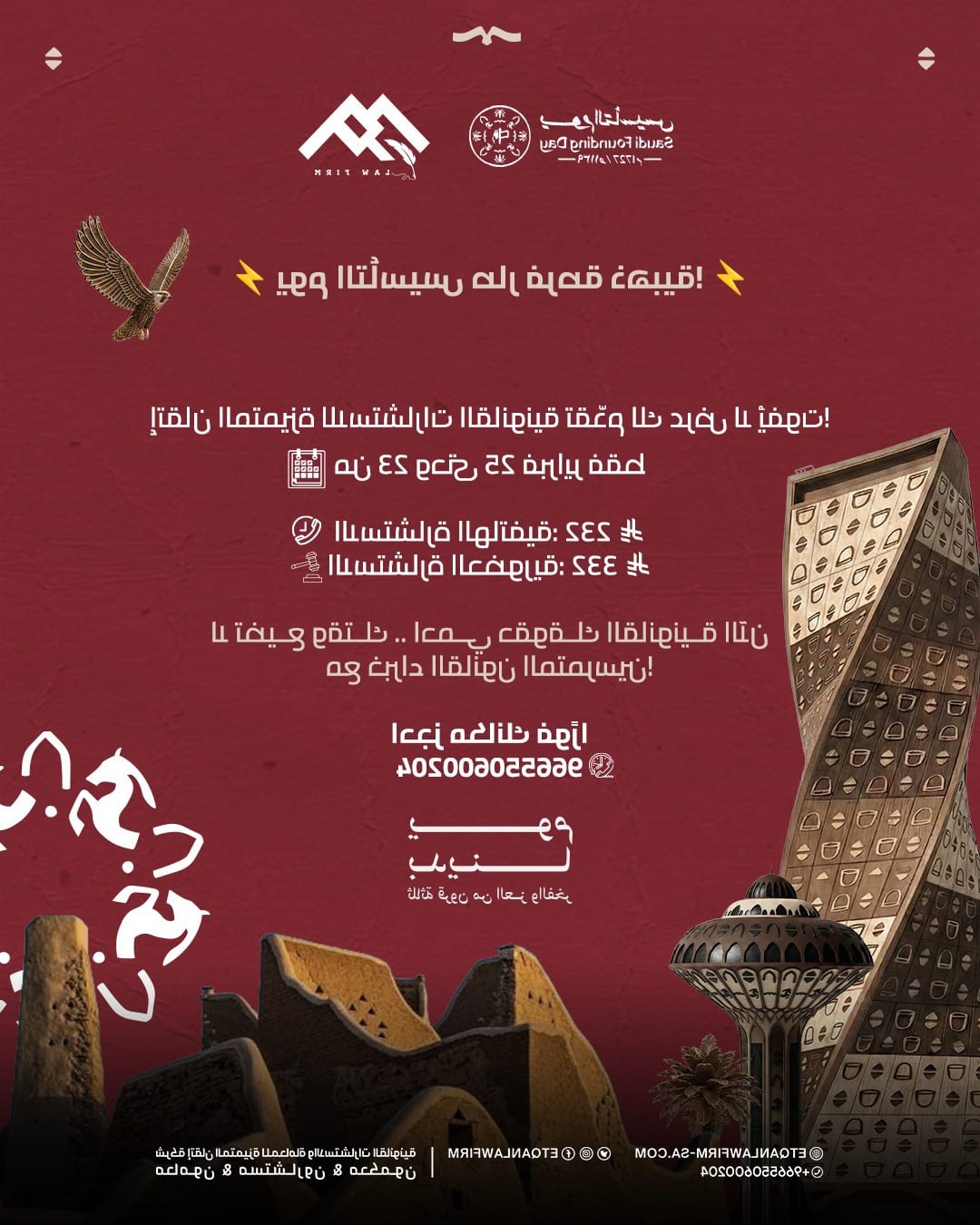
Saudi National Day 95 is more than just a date on the calendar; it is a historic reminder of the unification of the Kingdom of Saudi Arabia. Every year on September 23, Saudis come together to honor the legacy of King Abdulaziz bin Abdulrahman Al Saud who laid the foundations of unity and progress in 1932.
In its 95th edition, Saudi National Day 95 holds even deeper meaning — and for anyone still asking “What is Saudi National Day?”, it is the living celebration of unification, identity, and a bright future for the Kingdom.
المحتويات
When is Saudi National Day 95?
The Kingdom of Saudi Arabia celebrates its National Day on the 23rd of September each year, marking a historic turning point when the nation was unified under the name Kingdom of Saudi Arabia by the founder, King Abdulaziz bin Abdulrahman Al Saud – may he rest in peace – in 1932.
This unification was formalized through a royal decree issued on the 17th of Jumada Al-Awwal, 1351 AH, bringing together the country’s regions and laying the foundations of a strong and stable state.
National Day stands as an occasion of gratitude for the founder’s efforts in building the nation, a symbol of pride in Saudi identity, and a commemoration of history and heritage passed down through generations.

Read also: The Role of Corporate Governance Saudi Arabia
Saudi National Day Celebration
Saudi Arabia national day is one of the most significant occasions in the Kingdom, reflecting unity, pride, and cultural richness. According to Saudi National day history, this day commemorates the unification of the nation by King Abdulaziz bin Abdulrahman Al Saud in 1932, a milestone that laid the foundation for modern Saudi Arabia. Every year, the Saudi national day date is celebrated on 23 September Saudi national day, marking a moment of gratitude for the past and inspiration for the future.
Saudi Arabia commemorates its National Day each year with a wide variety of events that highlight the nation’s heritage and identity. Major cities across the Kingdom come alive with traditional festivals, folkloric dances, and cultural activities that attract people of all ages. The capital, Riyadh, serves as a central hub of celebrations with the renowned “Lights and Colors” festival, featuring stunning 3D light shows, musical concerts, art exhibitions, and special pavilions that showcase the richness of Saudi cultural heritage.
Check out: Understanding Vacation Pay Calculation In Saudi Arabia
In addition, the Ministry of Education has revealed that the official holiday for students in schools will fall on Tuesday, September 23, 2025, in line with its academic calendar. Similarly, the Ministry of Labor has designated the same date as a public holiday for employees across government and private sectors, granting citizens and residents the opportunity to take part in the nationwide celebrations.
Festivities will continue across the Kingdom with events designed to appeal to all age groups, ranging from spectacular aerial shows and theatrical performances to musical productions, shopping promotions, and cultural tours. Educational and cultural institutions will host special programs for youth and children, while fireworks and laser shows light up the skies, transforming the night into a dazzling artistic spectacle.
Thus, Saudi Arabia national day is not only a celebration of unity and heritage but also a reminder of resilience and progress. It connects Saudis to their proud past while motivating them toward an ambitious future.
Saudi Founding Day is not just a commemoration of a past date; it represents a milestone that encapsulates a long journey of state-building and progress, with legal development standing out as one of its key pillars of stability and continuity.
Learn about: Employment Contracts in Saudi Arabia: More Than Just Paperwork
The Evolution of Saudi Legal Systems
Since the establishment of the First Saudi State in 1139 AH (1727 CE), governance and judicial systems were built on Islamic Sharia as the main reference. Over the years, successive legislative and regulatory transformations reinforced the strength of the judicial system and ensured societal stability.
Phase One: Judiciary Based on Sharia
During the eras of the First and Second Saudi States, the judiciary operated on the foundations of Islamic jurisprudence, with particular emphasis on the Hanbali school. Judges ruled independently, basing their judgments on Sharia texts and jurisprudential principles, while also considering prevailing customs and community needs, which created a balanced judicial environment.
Phase Two: Institutional Beginnings of Legal Organization
With the unification of the Kingdom under King Abdulaziz Al Saud a new era of judicial organization began. In 1344 AH (1926 CE), the first General Presidency of Judges was established in Makkah to supervise the courts of Hijaz, while in Najd, individual judges continued to adjudicate in the major cities. Later, in 1389 AH (1970 CE), the Higher Judicial Committee was formed, followed shortly by the establishment of the Ministry of Justice in 1390 AH (1971 CE), tasked with overseeing court functions and organizing judicial affairs.
Phase Three: Issuing Basic Laws and Legislative Development
In the following decades, the Kingdom experienced a major shift in legal development with the issuance of key foundational laws, such as:
- The Basic Law of Governance (1412 AH / 1992 CE): which laid down the principles of governance and reaffirmed Sharia as the state’s foundation.
- The Judiciary Law (1428 AH / 2007 CE): which reinforced judicial independence and restructured the court system.
- The Law of Sharia Pleadings and the Law of Criminal Procedure: which strengthened justice, transparency, and rights protection during litigation.
Phase Four: Digital Transformation and Vision 2030
With the launch of Saudi Vision 2030, the legal system entered a new era of modernization and digitalization. The Najiz platform was introduced to provide judicial services electronically, and several landmark laws were enacted, including the Law of Evidence, the Personal Status Law, and the Civil Transactions Law. These modern legislations align with international standards while preserving Islamic and national identity. Additionally, the Kingdom expanded arbitration and commercial courts, boosting investor confidence and creating a more attractive business environment.
Conclusion
As the Kingdom proudly celebrates Saudi National Day 95, the occasion is more than just a holiday it is a living symbol of unity. From dazzling festivities and cultural showcases to special community initiatives like Etqan Law Firm’s exclusive legal consultation offer at only SAR 195, available from 21 to 25 September via a simple Arabic and English registration form, this day embodies both heritage and ambition.
The Etqan Al Mutamayza Law Firm is ready to provide the essential support you need. You can reach their team at the following mobile numbers: +96656113776, +966541110440, +966504315333.
Additionally, feel free to visit our branches located at:
- Jeddah: Al-Aziziyah District, Mohammed bin Abdulaziz Street (Tahlia)
- Riyadh: King Abdulaziz Street, across from the Kingdom Tower
- Dammam: Al-Ashri’a Street, Al-Badeea, Dammam 32415.
FAQ
What date is Saudi National Day?
Saudi National Day is celebrated every year on September 23rd, marking the unification of the Kingdom in 1932. In 2025, Saudi National Day 95 will fall on Tuesday, September 23rd, as an official public holiday.
How does Saudi Arabia celebrate National Day?
Saudi Arabia celebrates with fireworks, light shows, concerts, and cultural festivals across all major cities. Streets turn green with decorations, while families, schools, and institutions organize events to mark the joy of unity.
Why do we celebrate Saudi National Day?
We celebrate Saudi National Day to honor the unification of the Kingdom by King Abdulaziz in 1932. It is a day of pride, gratitude, and inspiration, reminding Saudis of their history while looking forward to the future.

